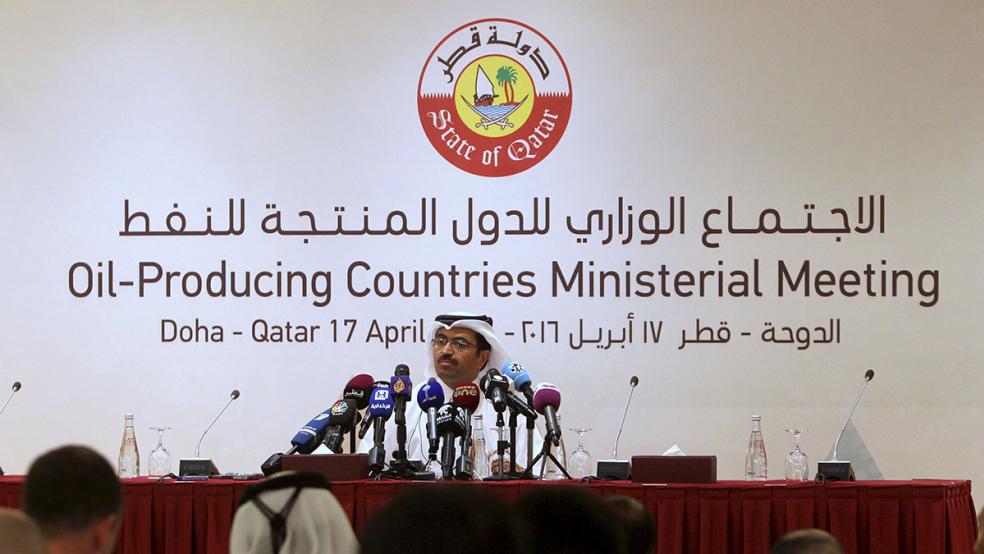They talked. They left. They promised to meet again.
The verdict: No deal.
That was the takeaway from the eagerly awaited OPEC-Russia oil production powwow in Doha, Qatar, on Sunday. The result of more than 10 hours of contentious deliberations by a bunch of guys that don't really like each other can’t be called a shock. You know, a proxy war and sectarian religious strife going back centuries will make it hard for a crowd to come to a consensus.
And with it, crude oil prices opened below the $40-a-barrel threshold while stocks opened lower as well before moving into positive territory, with the Dow Jones Industrial Average crossing the 18,000 mark for the first time since last July.
Related: Here’s How the Oil Bust Will Become the Next Boom
Disappointment had been in the air after a possible agreement to cap production — and start the process of rebalancing global energy markets — was first hinted at on Feb. 11. Since then, stocks and oil prices have been frequently supported by breathless speculation in the financial media, a repeat of the headline-churning political machinations that surrounded all the flare ups of the Eurozone debt crisis over the last six years.
While we're sure to get additional details of the inner workings, early indications are that Russia, Qatar, Saudi Arabia and Venezuela had prepared a draft agreement on Saturday heading into the meeting but that things fell apart on Sunday morning. The draft would have committed signatories to freeze output at January levels through October — albeit with no enforcement mechanism.
The old "We need Iran in the deal" lynchpin seems to have been the problem, with Qatar's oil minister commenting that including all OPEC members in any deal would make the freeze more likely. Remember, Tehran wants any deal to put it at pre-sanctions output levels near 4 million barrels per day vs. around 3.3 million now.
Since this oil price war unleashed in 2014 by Riyadh was designed to retake market share from U.S. shale producers, this was a non-starter. Why would the Saudis give up the one thing they wanted from the outset? Taking market share from Americans and giving it to Iranians doesn't sound appealing. Thus, no deal.
Related: How Cheap Oil Is Transforming the Saudi Economy
It’s questionable that a deal would have done much to swing the global oil glut anyway, as any agreement would have frozen production at record levels. And non-OPEC producers, including the U.S., are already cutting production, leading some analysts to suggest that the oil market was already headed back to a better supply-demand balance, helping prices rebound more than 50 percent from their February low.
The key question now is what OPEC members decide to do regarding their own output. Reuters is reporting that another meeting has been scheduled for June with the focus now on securing an internal agreement among OPEC nations first before seeking Moscow's adherence.
Oman's oil minister said they needed more time to work the deal out. Russian Energy Minister Alexander Novak said a deal would have balanced supply-and-demand in the energy markets within six months, but reaching that goal may now take until the middle of next year in his estimation.
Related: Why One Analyst Says Oil Could be at $85 by 2017
Saudi Arabia is apparently trying a new strategy to pressure Iran to soften its terms. On Thursday, Saudi Deputy Crown Prince Mohammed bin Salman said that if a freeze deal isn't found "we will sell at any opportunity we get" adding that the kingdom could increase output from 10.2 million barrels per day to 12.5 million in six to nine months "if we wanted to."
All of this is likely to be a headwind for stocks before long, even if it isn’t today.






